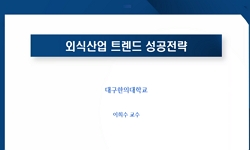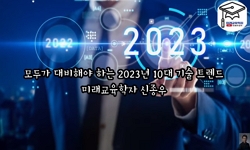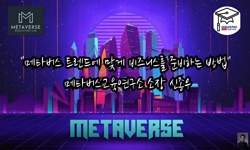소비 과정에서 나타나는 특정한 경향이나 패턴을 의미하는 소비 트렌드는 소비자의 구매 의사 결정에 영향을 미치고 나아가 경제적, 사회적 변화를 일으킴에 따라 그 특성을 명확히 파악하...
http://chineseinput.net/에서 pinyin(병음)방식으로 중국어를 변환할 수 있습니다.
변환된 중국어를 복사하여 사용하시면 됩니다.
- 中文 을 입력하시려면 zhongwen을 입력하시고 space를누르시면됩니다.
- 北京 을 입력하시려면 beijing을 입력하시고 space를 누르시면 됩니다.

토픽 모델링과 Q방법론을 활용한 신규 소비 트렌드 특성 분석: YONO 소비 트렌드를 중심으로 = Study of New Consumption Trend Characteristics by using Topic Modeling & Q Methodology: Focusung on the YONO Consumption Trend
한글로보기https://www.riss.kr/link?id=A109747524
- 저자
- 발행기관
- 학술지명
- 권호사항
-
발행연도
2025
-
작성언어
Korean
-
주제어
YONO ; Q방법론 ; 토픽 모델링 ; 트렌드 ; 고객 세분화 ; YONO ; Q methodology ; Topic Modeling ; Trends ; Customer Segmentation
-
등재정보
KCI등재
-
자료형태
학술저널
- 발행기관 URL
-
수록면
979-998(20쪽)
- 제공처
-
0
상세조회 -
0
다운로드
부가정보
국문 초록 (Abstract)
분석 결과 YONO 소비 트렌드의 소비자 유형은 적극 과시형, 자기 몰입형, 미래 지향형, 현재 집중형의 4가지유형으로 구별되었다. 제1유형인 적극 과시형의 경우 챌린지와 SNS 등 과시형 특성에 집중하는 경향이 있었으며 절약을 하고 있는 자신의 모습을 타인에게 보여주는데 집중하는 특성을 보였다. 제2유형인 자기 몰입형의 경우 적극적으로 절약에 임하는 모습을 보였으며 자기 자신에 집중하고 자신의 노력에 대한 보상 심리를 가지는 특성을 보였다. 제3유형인 미래 지향형의 경우 실질적인 절약에 적극적으로 참여해 미래의 자신에게 보상을 주고자 하는 성향을 보였다. 제4유형인 현재 집중형의 경우 절약의 이유가 미래보다는 현재에 초점이 맞춰져 있었고 직관적인 절약을 선호하며 절약을 위해서는 식비를 줄이는 등 불편함을 기꺼이 감수하는 특성을 보였다.
본 연구는 토픽 모델링과 Q방법론을 상호보완적으로 활용함으로서 각 방법론이 갖는 한계를 보완하고자 했다.
결과적으로 토픽 모델링을 통해 새로운 소비 트렌드로 주목받고 있는 YONO와 소비자에 대한 유형을 세분화했으며, Q방법론을 활용해 각 유형별 구체적인 특성을 도출함으로서 각 소비 고객층에 대한 맞춤형 전략을 제시했다.
소비 과정에서 나타나는 특정한 경향이나 패턴을 의미하는 소비 트렌드는 소비자의 구매 의사 결정에 영향을 미치고 나아가 경제적, 사회적 변화를 일으킴에 따라 그 특성을 명확히 파악하고 인식하는 것이 중요하다. 그러나 최근 관찰되는 다양한 소비 트렌드는 그 변화의 속도가 빠르고 여러 불확실성을 내재하고 있어 명확한 특성을 파악하기 어렵다. 이에 본 연구는 토픽 모델링과 Q방법론을 혼용한 트렌드 탐색 방법을 제시하고 최근 주목받고 있는 YONO 소비 트렌드를 대상으로 주요 특성을 파악하였다. 이를 위해 뉴스 자료와 블로그 등 웹을 이용한 텍스트 데이터를 수집하고 토픽 모델링 기법인 LDA를 적용해 핵심 토픽을 도출, Q표본을 구성하고 조건에 부합하는P표본을 이용해 분석을 진행하였다.
분석 결과 YONO 소비 트렌드의 소비자 유형은 적극 과시형, 자기 몰입형, 미래 지향형, 현재 집중형의 4가지유형으로 구별되었다. 제1유형인 적극 과시형의 경우 챌린지와 SNS 등 과시형 특성에 집중하는 경향이 있었으며 절약을 하고 있는 자신의 모습을 타인에게 보여주는데 집중하는 특성을 보였다. 제2유형인 자기 몰입형의 경우 적극적으로 절약에 임하는 모습을 보였으며 자기 자신에 집중하고 자신의 노력에 대한 보상 심리를 가지는 특성을 보였다. 제3유형인 미래 지향형의 경우 실질적인 절약에 적극적으로 참여해 미래의 자신에게 보상을 주고자 하는 성향을 보였다. 제4유형인 현재 집중형의 경우 절약의 이유가 미래보다는 현재에 초점이 맞춰져 있었고 직관적인 절약을 선호하며 절약을 위해서는 식비를 줄이는 등 불편함을 기꺼이 감수하는 특성을 보였다.
본 연구는 토픽 모델링과 Q방법론을 상호보완적으로 활용함으로서 각 방법론이 갖는 한계를 보완하고자 했다.
결과적으로 토픽 모델링을 통해 새로운 소비 트렌드로 주목받고 있는 YONO와 소비자에 대한 유형을 세분화했으며, Q방법론을 활용해 각 유형별 구체적인 특성을 도출함으로서 각 소비 고객층에 대한 맞춤형 전략을 제시했다.
다국어 초록 (Multilingual Abstract)
The analysis revealed four distinct consumer types associated with the YONO trend: proactive exhibitionists, self-immersed individuals, future-oriented participants, and present-focused participants.
Proactive exhibitionists demonstrated a strong inclination to showcase their frugal practices through social media and participation in public challenges, emphasizing external validation and recognition. Self-immersed individuals displayed an intense focus on saving for personal satisfaction, often motivated by self-reward and the fulfillment derived from their efforts. Future-oriented participants were characterized by their active engagement in practical saving behaviors aimed at benefiting their future selves. In contrast, present-focused participants emphasized immediate needs over long-term planning, often adopting intuitive and straightforward methods like reducing food expenses, even at the cost of personal comfort.
By leveraging the complementary strengths of topic modeling and Q-methodology, this study addresses the limitations inherent in each individual approach. Topic modeling provided a means to identify the emerging YONO trend and segment consumers into distinct types, while Q-methodology offered detailed insights into the specific characteristics and motivations of each group. These findings contribute to a nuanced understanding of consumer behavior within the YONO trend, laying the groundwork for the development of tailored strategies that align with the unique preferences and needs of each consumer segment. This integrated approach also serves as a model for studying other dynamic and rapidly evolving consumer trends
Consumer trends, which refer to specific patterns or tendencies observed in consumption behaviors, significantly impact purchasing decisions and drive broader economic and social transformations. As the pace of change in these trends accelerates and t...
Consumer trends, which refer to specific patterns or tendencies observed in consumption behaviors, significantly impact purchasing decisions and drive broader economic and social transformations. As the pace of change in these trends accelerates and their uncertainty grows, it becomes increasingly challenging to clearly identify their characteristics. This study introduces an integrated approach combining topic modeling and Q-methodology to explore emerging trends, with a focus on the YONO (You Only Need One) trend. To achieve this, text data from online sources, including news articles and blogs, was collected and analyzed using Latent Dirichlet Allocation (LDA). Key topics were identified, forming the basis of a Q-sample, which was further analyzed with a P-sample that met predefined criteria. This methodological combination enabled a comprehensive understanding of the YONO trend.
The analysis revealed four distinct consumer types associated with the YONO trend: proactive exhibitionists, self-immersed individuals, future-oriented participants, and present-focused participants.
Proactive exhibitionists demonstrated a strong inclination to showcase their frugal practices through social media and participation in public challenges, emphasizing external validation and recognition. Self-immersed individuals displayed an intense focus on saving for personal satisfaction, often motivated by self-reward and the fulfillment derived from their efforts. Future-oriented participants were characterized by their active engagement in practical saving behaviors aimed at benefiting their future selves. In contrast, present-focused participants emphasized immediate needs over long-term planning, often adopting intuitive and straightforward methods like reducing food expenses, even at the cost of personal comfort.
By leveraging the complementary strengths of topic modeling and Q-methodology, this study addresses the limitations inherent in each individual approach. Topic modeling provided a means to identify the emerging YONO trend and segment consumers into distinct types, while Q-methodology offered detailed insights into the specific characteristics and motivations of each group. These findings contribute to a nuanced understanding of consumer behavior within the YONO trend, laying the groundwork for the development of tailored strategies that align with the unique preferences and needs of each consumer segment. This integrated approach also serves as a model for studying other dynamic and rapidly evolving consumer trends
동일학술지(권/호) 다른 논문
-
- 대한경영학회
- 김진영
- 2025
- KCI등재
-
한국 제조기업의 디지털 전환 인식과 혁신성과 간의 비선형적 관계: 도입 수준과 대응 수준의 조절효과
- 대한경영학회
- 허아정
- 2025
- KCI등재
-
DEI 정책이 직무만족에 미치는 영향: 고용브랜드와 조직충성도의 다중매개효과를 중심으로
- 대한경영학회
- 정아현
- 2025
- KCI등재
-
자기효능감과 발언행동: 조직지원인식과 성취욕구의 강화 효과
- 대한경영학회
- 이호량
- 2025
- KCI등재




 KCI
KCI DBpia
DBpia






